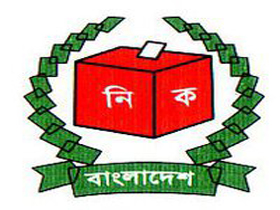
The Election Commission has completed its all preparations for holding elections in 147 constituencies out of 300 in the country amid the opposition’s call to people to boycott what it said the farcical polls.
As part of the preparations, Chief Election Commission Kazi Rakibuddin Ahmad will inaugurate a media centre on the premises of the Election Commission Secretariat at 11:30pm on Saturday ahead of the country’s 10th parliamentary elections.
The commission has also set up a control room at the EC secretariat to receive the election results from across the country on completion of the voting at 4pm on Sunday.
Officials at the EC Secretariat held a meeting on Friday afternoon to finalise the procedure of collecting the election results.
The BNP-led 18-party alliance is boycotting the election as its demand for a non-partisan interim-government to oversee the election has gone unheeded.
Meanwhile, opposition leader Khaleda Zia on Friday urged the country’s people to fully boycott the January-5 election terming it a farce in the name of polls, while Prime Minister Sheikh Hasina in her address to the nation on Thursday said this election will create an opportunity for people to form a government of their choice.
Only four foreign observers – two from each India and Bhutan — will monitor the January-5 general election, SM Asaduzzaman, Director of the Election Commission Secretariat, told UNB on Friday.
But in 2008 a total of 585 foreign observers from 18 agencies monitored the ninth general election.
Even the Election Worker Group, a platform of 29 non-government organisations who deployed nearly 1.5 lakh observers in the 2008 election will monitor the 10th national election in a small scale.
Out of 40 registered political parties, 12 parties are contesting the election which is being boycotted by the BNP-led 18-party opposition alliance.
In the 147 constituencies, there are 120 contesting candidates of Awami League, while 66 of HM Ershad-led Jatiya Party, 27 of Jatiya Party-JP, 22 of the newly-floated BNF, 21 of Jasad, 16 of Workers’ Party, six of Bangladesh National Awami Party, three of Bangladesh Tarikat Federation, two of Bangladesh Khelafat Majlish, one of each Ganotantri Party, Ganofront and Bangladesh Islami Front, and 104 independent candidates.
Some 18,208 polling stations and 91,213 booths have been set up in the 147 constituencies.
To curb the polls violence, there are 147 judicial magistrates and 294 executive magistrates, and 103 two-member electoral enquiry committees in the constituencies.
Nearly 3 lakh election officials, including 61 returning officers, 18,208 presiding officers, 91,213 assistant presiding officers and 182,426 polling officials are engaged to cast votes on the polling days.
This time more than half the country’s voters are being deprived of exercising their franchise in the 10th parliamentary elections as 153 constituencies got single candidates after the withdrawal of candidature.
Only 4,39,38938 voters are lucky ones who get the chance of choosing the representatives of their constituencies.
A total of 48027039 voters out of the country’s 9,19,65,977 voters are deprived of their voting rights.
Some 390 candidates run in the electoral races in the 147 constituencies in 59 districts, while 153 more candidates are set to be elected uncontested across the country.
The arrangement of voting is not needed on January 5 in the five districts – Joypurhat, Rajbari, Shariatpur, Madaripur and Chandpur — where all the constituencies got single candidates.
In an unprecedented instance in the country’s election history, a record number of 153 MP candidates elected unopposed the 2014 general election.
Of the MP candidates who are set to be elected, 127 candidates of AL, 20 of Jatiya Party, three of Jasad, two of Workers’ Party and single candidate of Jatiya Party-JP
Before this, the highest 49 MP candidates were elected uncontested in the one-sided 1996 February election which had been boycotted by the then the opposition Awami League.
Source: UNB Connect

